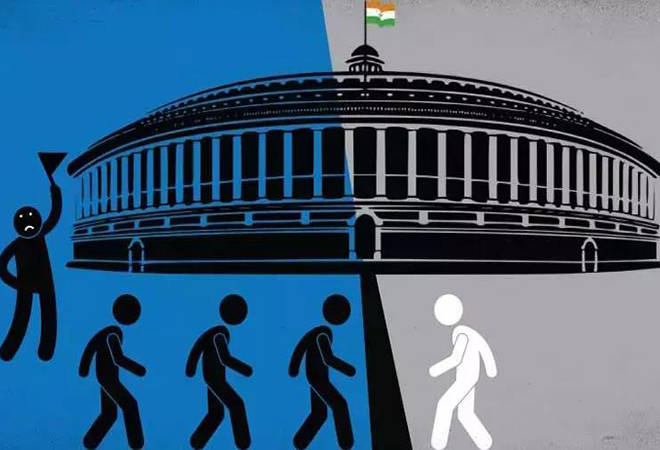
Image Source: ipleaders
From the UPSC Perspective
Introduction
Defection, within the context of politics, has been a persisting issue in democracies worldwide. In parliamentary systems, the role of the Speaker in dealing with matters of defection has often been a topic of contention. In the Indian context, this issue has garnered significant attention, with arguments both for and against the Speaker's involvement. However, considering the complexities of this matter, it is imperative to assess the implications of removing defection-related responsibilities from the purview of the Speaker, particularly in the context of the Union Public Service Commission (UPSC).
The Role of the Speaker in Defection
The Speaker of the House in the Indian parliamentary system holds a critical position, tasked with maintaining order and ensuring the smooth functioning of the legislative process. However, when it comes to matters of defection, the Speaker's role can potentially become contentious, as the Speaker belongs to a political party and may face pressures to act in favor of their party's interests. This conflict of interest can often lead to accusations of biased decision-making and can undermine the trust in the Speaker's ability to handle defection-related issues impartially.
Challenges and Implications
Removing the responsibility of dealing with defection from the Speaker's purview could potentially lead to a more impartial and transparent process. It could help in preventing instances of political bias and ensure that matters of defection are dealt with in a more objective manner. However, such a move would require a careful reevaluation of the existing parliamentary procedures and the distribution of responsibilities among various institutions involved in the legislative process.
UPSC Perspective
From the UPSC perspective, the removal of defection-related responsibilities from the Speaker could ensure a more stable political environment, leading to better governance and policy implementation. It could foster an atmosphere of trust and integrity within the political system, ultimately reflecting positively on the bureaucracy and administrative apparatus. Moreover, it would reinforce the idea of a robust and independent democratic framework, crucial for the effective functioning of public institutions, including the UPSC.
Conclusion
While the role of the Speaker in handling defection-related matters has been a longstanding tradition in the Indian parliamentary system, it is essential to critically assess its impact on the overall democratic fabric. With the UPSC serving as a critical pillar of the Indian administrative structure, the need for a transparent and impartial political environment cannot be overstated. Thus, the proposition to take matters of defection out of the Speaker's purview warrants careful consideration, with an emphasis on fostering a more accountable and unbiased political framework.